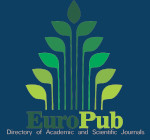Alimentação brasileira: das especificidades regionais à perda da identidade cultural
DOI:
https://doi.org/10.17648/diversitas-journal-v6i1-1583Abstract
ABSTRACT: This research analyzed the Brazilian regional food specificities and their transformations over time. Therefore, the characterization of the historical-cultural period that eludes the eating habits of the 5 Great Brazilian Regions was carried out (IBGE, 1970). Bourdieu (1989) identified the regions defined by properties and signs linked to their origin, correlated to cultural identity. This, which daily changes by external, global, and cultural massing factors. The research is based on Kietchenham; Charters (2007) in conducting a systematic bibliographic review of materials already published, consisting of a sequence of three stages, which are: planning, conduction, and presentation of the review. Among the authors, the notes of Freyre (1951), Ribeiro (1977), Castro (1980), and Carneiro (2003) whose works served as the main theoretical basis stand out. The structuring concepts and hypotheses of the authors were tabulated, seeking to answer three problem questions: a) What are the main considerations made by researchers about Brazilian regional food?; b) How do external and global influences influence changes in Brazilian culture and food?; c) How Brazilian regional cuisine were socially constructed and what socioeconomic and spatial aspects are rooted in this cultural identity?
KEYWORDS: Brazilian food, region, culture.
Metrics
References
AZEVEDO, E; PEIXOTO, K.; COELHO, O.; ARAÚJO, R. Gostinho de Brasil: A tradição culinária de Norte a Sul do país. Rev. Eclético. n.22, p.74-77, 2006. Disponível em: <http://puc-riodigital.com.puc-rio.br/media/22%20-%20gostinho%20de%20brasil.pdf> Acesso em: 22 de junho de 2020.
BORGES, A. Mercado de trabalho: mais de uma década de precarização. In: DRUCK, G.; FRANCO, T. (Org.). A perda da razão social do trabalho: terceirização e precarização. São Pauto: Boitempo, 2007.
BOURDIEU, P. O poder simbólico. Rio de Janeiro: Bertrand Brasil. São Paulo: Difel, 1989.
CANESQUI, A. M.; GARCIA, R. W. D. Antropologia e Nutrição: um diálogo possível. Rio de Janeiro: Editora Fiocruz, 2005.
CARNEIRO, H. S. Comida e sociedade: uma história da alimentação.[S.l: s.n.], 2003.
CASTRO, J. Geografia da fome (o dilema brasileiro: pão ou aço).10ªEd. Rio de Janeiro: Antares Achiamé; 1980.
COSTA, M. da S. Informal labor: a basic structural problem in the understanding of inequalities in Brazilian society. Caderno CRH,v. 23, n. 58, p. 171-190, 2010.
DAMIANI, T. F, PEREIRA, L. P, FERREIRA, M. G. Consumo de frutas, legumes e verduras na Região centro-oeste do Brasil: prevalência e fatores associados. Cien Saude Colet. 2017, p. 369-382.
FREITAS. M.do C. S. de. Agonia da fome. Salvador: EDUFBA, 2003.
FREYRE, G. Nordeste. Rio de Janeiro, José Olympio, 1951.
HALL, S. A identidade cultural na pós-modernidade. Rio de Janeiro: DP&A, 2006.
IANNI, O. Teorias da globalização.4ª ed., Rio de Janeiro: Civilização Brasileira, 1997.
IBGE. Divisão do Brasil em Microrregiões Homogêneas 1968.Rio de Janeiro: Ministério do Planejamento e Coord. Geral /Fundação IBGE. 1970. 564p.
IBGE. Sinopse do Censo Demográfico de 2010.Rio de Janeiro, 2011.
KNOBEL, M.; MEDEIROS-NETO, G. Moléstias associadas à carência crônica de iodo. Arquivos Brasileiros de Endocrinologia e Metabolismo, São Paulo, v. 48, n. 1, p. 53-61, 2004. Disponível em: <https://repositorio.usp.br/item/001729158>. Acessado em: 06 de julho de 2020.
LEFEBVRE, H. La production de l ́espace.4eédition. Paris: Anthropos, 2000.
LUVIZOTTO, C. K. Migração e separatismo: alemães no processo de criação do movimento separatistano sul do Brasil. Monografia apresentada ao Departamento de Ciências Sociais, UNESP, para obtenção do título de Bacharel em CiênciasSociais. Marília, 2000.
MACIEL, M. E. M. Olhares antropológicos sobre a alimentação Identidade cultural e alimentação. In: CANESQUI, A. M.; DIEZ GARCIA, R. W. Antropologia e nutrição: um diálogo possível. Rio de Janeiro, Fiocruz, 2005. p.49-55.
ORGANIZAÇÃO MUNDIAL DA SAÚDE. World Health Organization (WHO). Indicators for assessing vitamin A deficiency and their application in monitoring and evaluating intervention programmes.Geneva, 1996.
ORTIZ, R. Cultura brasileira e identidade nacional. São Paulo: Editora Brasiliense, 1985.
REINHARDT, B. Espelho ante espelho: a troca e a guerra entre o neopentecostalismo e os cultos afro-brasileiros em Salvador. São Paulo: Attar, 2007.
RIBEIRO, J. O folclore do açúcar. Rio de janeiro: Funarte, 1977.
RODRIGUES, A.G.M. Estado nutricional, indicadores sociodemográficos, comportamentais e de escolha alimentar de comensais em restaurante de bufê por peso. Dissertação de Mestrado Universidade Federal de Santa Catarina. Florianópolis, 2011.
SANTOS, M. O espaço dividido: Os dois circuitos da economia urbana dos países subdesenvolvidos. F. Alves. Rio de Janeiro, 1979.
SEYFERTH, G. Horizontes Antropológicos. Porto Alegre, ano 6, n. 14, p. 95, 2000.
SILVA, J. L. M. da. Alimentação e transformações urbanas em São Paulo no século XIX. Almanack, n. 7, p. 81-94, 2014. Disponível em: <https://www.scielo.br/pdf/alm/n7/2236-4633-alm-07-00081.pdf>. Acesso em: 22 de junho de 2020.
SONATI, J.G.; VILARTA, R.; SILVA, C.C. Influências culinárias e diversidade cultural da identidade brasileira: Imigração, Regionalização e suas Comidas. Qualidade de Vida e Cultura Alimentar.1ª ed. v.1, Campinas: IPES, 2009, p.137-147.
TINKER, I. Street foods into 21st century. Agriculture and Human Values, 1999, p. 327-333.
VASCONCELOS, F.A.G. Josué de Castro e a Geografiada Fome no Brasil. Cadernos de Saúde Pública, v. 24, p. 2710-2717, 2008.
Downloads
Published
How to Cite
Issue
Section
License
Copyright (c) 2021 Fernando Camillo Santos Cano

This work is licensed under a Creative Commons Attribution 4.0 International License.
The Diversitas Journal expresses that the articles are the sole responsibility of the Authors, who are familiar with Brazilian and international legislation.
Articles are peer-reviewed and care should be taken to warn of the possible incidence of plagiarism. However, plagiarism is an indisputable action by the authors.
The violation of copyright is a crime, provided for in article 184 of the Brazilian Penal Code: “Art. 184 Violating copyright and related rights: Penalty - detention, from 3 (three) months to 1 (one) year, or fine. § 1 If the violation consists of total or partial reproduction, for the purpose of direct or indirect profit, by any means or process, of intellectual work, interpretation, performance or phonogram, without the express authorization of the author, the performer, the producer , as the case may be, or whoever represents them: Penalty - imprisonment, from 2 (two) to 4 (four) years, and a fine. ”















.png)




